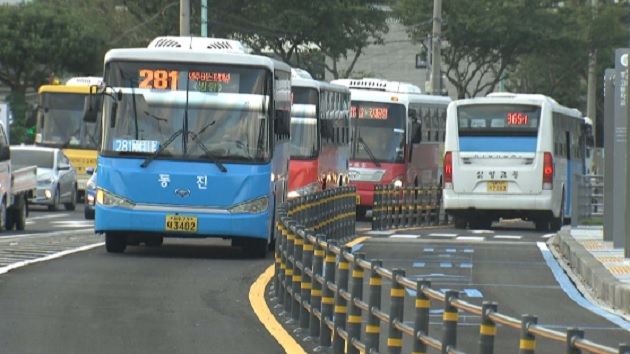
It’s been one year since the island’s public transport system was overhauled. The changes cost over 140 billion won, but buses are now running faster, and the tickets for them are cheaper. Mike Balfour reports.
The public transportation system was overhauled last year, the biggest changes in 30 years.
The province took over the bus operation from a private firm and spent more than 140 billion won on the reforms over the last 12 months.
65 percent of the budget was used to buy new buses and hire drivers.
51 billion won was spent for bus station construction and operation.
[slug]
‘Positive results from public transport changes’
Although the reforms caused controversy over the excessive benefits to bus operators, indicators are showing positive changes.
The number of daily passengers has increased 11.4 percent to 170,000.
The rate of transportation card use has also grown from 66 to 82 percent.
As bus fares were set at 1,200 won, regardless of distance, riders were able to save about 30 billion won in transportation expenses.
That works out to approximately 43,000 won in savings per resident on average over the last 12 months.
[slug]
28% more bus passengers
Since the introduction of the central bus lanes, the number of bus passengers has grown 28 percent.
The average speed on the central bus lanes between (광양) Gwangyang and (아라) Ara has increased over 70 percent.
[slug]
Public transport use ratio expected to reach national average in 2020
The province expects that the public transport use ratio will reach the national average in 2020 when the island’s public bus system stabilizes.
The public transport use ratio in Jeju is currently the lowest in the nation.
[Reporter] Mike Balfour
[Camera] Park Byeong-joon
The province says that the public transportation service is a part of the island’s universal welfare. It will examine and adjust the standard costs for operating buses and redesign bus routes to reduce deficit.
Mike Balfour, KCTV





